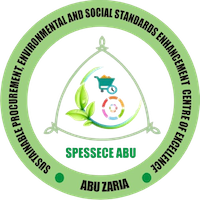
Academic offerings include 95 majors, 86 minors, and more than 100 in-major specializations
The aim of this programme is to produce procurement experts whose skills will improve governance and efficiency,
enhance the efficiency and effectiveness of service delivery and improve value for money in private and public expenditure.
The objectives of the programme are to:
The Sustainable Environmental Studies programme is designed to produce competent, intellectually mature, ethical, and socially responsible environmental resource managers. It aims to provide students with a strong foundation in ethical and value systems, environmental law and policy, indigenous and religious beliefs, and the historical impacts of past environmental decisions. The programme also seeks to build environmental awareness and understanding of diverse challenges and opportunities across local and regional contexts, while offering comprehensive knowledge of management systems, legal frameworks, and sociocultural factors influencing the sustainable use of natural resources.
Furthermore, the programme emphasizes the development of practical skills for applying theoretical concepts of resource and environmental standards to real-world community and workplace situations. It enhances students’ understanding of geophysical and biological processes that shape human interactions with the environment and equips them with monitoring and environmental standards tools used by resource and environmental practitioners. Through this approach, graduates are prepared to make informed, ethical, and effective contributions to sustainable environmental management.
According to World Banks’s demand assessment for professional procurement officers conducted in preparatory to the commencement of the SPESSCE project, at least total of one thousand Three Hundred and Twenty-two (1,322) students are required to fill up spaces in the PGD Sustainable Environmental Studies Programme. These students are mostly officers currently serving in various government ministries, departments and agencies at state and Federal levels that need sustainable environmental competences to support sustainable procurement processes. It also envisaged that graduates with keen interest in procurement whose first degrees are not in procurement would join the programme.
The Track C training is targeting individuals with a HND or 3rd class degree, especially those that are serving in various government ministries, departments and agencies at state and federal levels that need sustainable environmental competences to support sustainable procurement processes. Thus, the entry requirements for admission into the PGD programme are as follows:
The duration of the Postgraduate Diploma (PGD) in Sustainable Environmental Studies programme is structured to accommodate both full-time and part-time students. The full-time option shall run for a minimum of two (2) semesters, while the part-time option shall run for a minimum of four (4) semesters. In all cases, students are expected to complete the programme within a period not exceeding one and a half (1½) times the prescribed minimum duration for graduation.
To qualify for the award of the Postgraduate Diploma (PGD) in Sustainable Environmental Studies, a candidate must successfully complete a minimum of twenty-eight (28) credit units. These shall comprise twenty (20) units of core courses, four (4) units of elective courses, and four (4) units dedicated to the research project. In total, the programme requires the completion of twenty-eight (28) credit units for graduation.
The Course will be delivered through both physical and virtual means. Students grading will consist of 60% from Examination and 40% from Continuous Assessment, Presentations and Assignment.